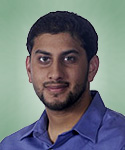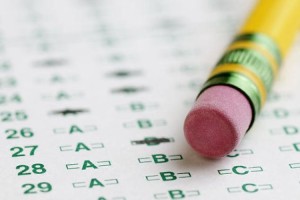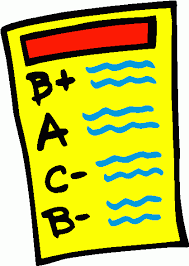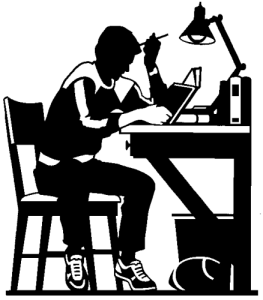March 14th, 2016
The Era of the Ill-Prepared Medical Student
Ahmad Yousaf, MD

Ahmad Yousaf, MD, is the 2015-16 Ambulatory Chief Resident in Internal Medicine at Rutgers New Jersey Medical School.
What is wrong with medical students nowadays? This question has been circulating in the academic medical world for years. As an intern and resident, I would hear complaints about how ‘unready’ they seemed. The grievances often include adjectives like ill-prepared, lazy, or uninterested. The complaints have burgeoned over time, and the examples are numerous in my institution: Students show up late to rounds with coffee in their hands; one med student had the gall to go directly to the attending and request early dismissal because he ‘had nothing to do.’ The problem seems to permeate all schools. Beyond the effects of this behavior on student culture, it results in underprepared interns and residents.
As a chief resident, I have set aside weekly teaching conferences with the students, and I think I have begun to better understand the issues. Just 5 to 10 years ago, medical school expectations were high. You were expected to show up early to rounds, leave late, be at the beck and call of your resident, and have absolute respect for an attending physician. Respect for the process of education was standard. You dressed appropriately. You studied to impress, and you came to rounds prepared to try your best. So why have these standards changed recently? Because none of these qualities are rewarded appropriately in a student’s medical school ‘report card.’
Medical student grades, and therefore class ranks, theoretically are based upon two major components: clinical evaluations and test scores (i.e., shelf exams). But the truth is, in medical education today, evaluations completed by residents and attendings of students on their medical teams are essentially useless. Most evals result in clinical grades that are essentially the same, no matter how hard-working or lazy a student was on the floors. Many reasons are put forward to explain why this occurs, but I think the most important is ‘evaluation burnout.’ Academic medicine is riddled with so many unneeded and redundant evaluations that most physicians do not put the time or mindshare into making them useful. This results in clinical scores that do not help discern who put forth the work to excel and who just showed up because they needed proof of attendance. It is for this reason that the test scores are weighted so much more heavily than clinical evaluations in the eyes of the average medical student.
“Why get to work early and learn about my patient when my test score and a review of ‘high yield’ facts from a review book will further my career more effectively than learning how to do a good physical exam?” “What is the point of having a well-prepared presentation for rounds when I will get the same score as my colleague who spent the morning going through review questions?” “What is the point of impressing my attendings when all that really matters is my grade and class rank?”
These questions guide the behavior of students, and I cannot blame them. Medical school is competitive. Long-term career plans depend on more than whether a resident team thinks a student is not putting quality time in on the wards. The finger must be pointed at our medical education system, which values test taking over clinical knowledge and skill. How can we expect to produce a generation of quality practitioners without ensuring that we instill the value of actually practicing that theoretical medicine they learn in textbooks and are quizzed on in exams? We somehow have to shift the tide of education toward, or perhaps back toward, an environment in which becoming a physician means more than a number or letter grade or a class rank.
Do you agree that students are ill-prepared? Do you see a solution to the problem of students being less interested in the work on the wards?
~Yousaf




Two opposing forces are at play in medical education. The first is the contribution of the teacher. In my opinion clinical medical instruction is at best pathetic with too few physicians willing to spend the time to teach. The other force is subsequent to the first in that much of medical education becomes self taught. So unless you want interested students you must first have interested and capable instructors. It’s the cart before the horse scenario. Of course medical students didn’t magically drop from the sky and appear. They are the product of 16+ years of previous education and not a classical liberal education at that but a 20th century modern liberal or progressive or whatever it will be called 5 minutes from now type of education. Was that too micro-aggressive?
Haha. Appreciate the comment. Micro-aggressive indeed.
Kind of a self-serving article. Basically a “Kids these days are the worst” re-hash, with the author (a chief IM resident probably only 5 years senior to the students?!) presumably echoing his seniors/attendings and also piling on a bit himself.
Also kind of a self serving solution: “all these evaluations I have to complete are too much work for me. If I didn’t have to do all this paperwork, I could write a proper evaluation about how bad all these students are”.
Please. Some students are great, some are not. Twenty posts in, respondents have already covered the common bogeymen for “what’s wrong with med students today”:
-Millennials have never had a real job.
-Millennials are just test taking robots, or alternatively test taking selfish jerks depending on the accuser’s mood.
-We can’t give them bad grades or they will complain and administration will come after us.
And so forth. Respondents have also already covered the more likely truth of the situation:
-Every generation feels like this, the hysteria is overblown.
-Clinical education is watered down compared to years ago. Students can’t write the note (one that people actually look at to make decisions) in a meaningful way, can’t put in the orders in a meaningful way, really can’t find a way to be a meaningful part of the team at all for most given patients. The ways students actually help the team (go round up the social worker and fax those forms to get this guy discharged today) don’t exactly feel like learning the art of medicine.
-History is relevant but not quite like a generation ago, and the physical exam is a dying art for a reason- labs and radiology drive diagnosis these days. Physical exam currently just helps you decide where your threshhold is for ordering a lab, imaging study, or specialty consult.
-Things that are bedside are less relevant, but the amount of non-bedside knowledge that needs to be assimilated is continually expanding, making clinical rotations seem like you’re wasting precious time
-Residents/attendings are under their own time pressures for efficiency and time for teaching is limited.
So history taking is less relevant, physical exam is approaching an afterthought in both real life practice and actual usefulness, good engaging teachers are hit or miss, and for medicolegal reasons students are not allow to participate in any meaningful way in actual patient care. Is it surprising that students don’t seem very engaged ?
Students aren’t stupid, they’re paying a lot of money to learn medicine and how to take care of people. Clinical rotations involve a lot of time doing:
-Literally nothing, sitting around watching other people write notes, waiting for rounds to start, waiting for a case to begin, etc
-Things that don’t count (notes that you as a student know aren’t guiding care, orders that need to be cosigned and take the resident longer to co-sign than if they did it themselves, phone calls where people end up wanting to talk to the doctor anyway)
-Things that are less relevant (long rounds with histories and physical exams that usually just confirm already obtained test results).
-Real life skills that are not satisfying from a learner perspective (calling social work, organizing discharges, fielding complaints from nurses that sombody’s PRN orders are wrong, etc).
And all that for what? For any average 10hr day on wards or in clinic, I am sure most med students would tell you they could have learned more sitting at home studying for 4 hours and watching football for the other 6 hours. AKA, M2 year.
At 24+ years old, the foundation has already been laid for the soft skills that make someone a caring human being who connects with a sick person and makes them feel cared for. Students have it, or they don’t. It gets refined on ward as a student and resident and that is important, but not for 12hr or even 4hrs worth of time during the average ward day. You get like 20 mins of that kind of learning per day.
If you had to decide between a full day on wards with 1hr of actual learning (a combination of patient-doctor skills, actual medical facts, and how to function as a resident facts) out of 10-12hrs physically in the hospital vs being at home with 4hrs of q-bank/book learning, it’s an easy choice.
If there is any truth to “bad students” to begin with, it probably reflects the reality that lack of autonomy nowadays means medical school is no longer the best place to learn clinical skills. And that means clinical rotations seem like a waste of time, because you can’t learn clinical skills efficiently and it’s a terrible way to try to build your general medical fund of knowledge.
You’re better off building up a strong and deep fund of medical knowledge by being an antisocial test taking sponge for 4 years of medical school, and then learning how to function and act like a doctor in residency, when you have the autonomy to do so.
Despite the initial sel-serving bit, I agree with your conclusion. Unfortunately, we live in an era where testing taking will get you further in clinical application in med school. I actually think you re-iterated the point of my article in pointing blame at the system of education, not the masses of medical students who come to school to learn and get a job.
Thanks for the comment.
I believe there is also a lack of continuity of instructors, and therefore accountability. Medical education has been severely fragmented, in addition to decreased “ownership” of a patient in the “long shift” days. The more time a student spends with an instructor, the greater the accountability and expectation. I don’t see an obvious solution without restructuring. Paul Lecat
Phenomenal point! There is no true accountability of instructors and the level of teaching varies significantly between the interested and semi-interested clinical instructors. Perhaps part of the solution could be found there.
Thanks for the comment.
Students may be less interested because there are less exciting things for them to do on the floors. The phlebotomists draw blood from the patients at 4am before students arrive. There is an IV team to replace IVs. Interventional radiology does all the even more exciting procedures such as LPs and thoracenteses. I might be bored as a student today. But in this day and age, there is no spoon feeding anymore. You have to be aggressive in seeking opportunities (in all aspects of life, not just as a medical student). Hustle. And when nurses and residents and attendings see your interest, they will call you first when procedures and other exciting opportunities come up.
Great points. Students have to really be aggressive in the current environment to get the education that they want. It is unfortunate but a reality they will have to navigate.
thanks for the comment.
I just want to thank you for writing this article
I am only a second year medical student and and we only take theory lectures but this problem is a big one indeed. Students don’t have any respect for the lectures, the doctors or the fact that we will soon be in charge of human lives. We get 10 grades for attendance and that is the only reason most students actually bother showing up, they would much rather stay home and dig their noses into studying. Perhaps the problem is the evaluation system, students who are hard working and really put an effort to do their best aren’t getting any credit if their grades aren’t “excellent”. I believe to be a doctor you must be a real human first and those are the real standards that should bd implied
“I believe to be a doctor you must be a real human first and those are the real standards that should bd implied”
Could not agree more. Thanks for the comment.
I’m a medical student from Sri Lanka. We have a completely opposite story here. Obviously as everybody does we here “new generation is bad” here in SL too. But because of our culture we were taught to respect seniors and teachers. These qualities can not be expected and taught only after becoming a medstudent.
At the same time our behaviour matters to the dot because consultants can repeat our appointments as long as they wish. Until they sign we are not allowed to sit for the exams. So we never play with teachers. They are always superior to us we never call them by names or do silly things.
But personally I don’t like this planned acting part (though everybody else like and praise) because I’m a chronic irregular learner. I study around things e.g. etymology and history. Some consultant s and registrars are impressed by those and some never want to know the parallel knowledge of the student and how keen he is.
Your article really hit home the frustration I have encountered at our teaching hospital. I have seen a dramatic decline in the fund of knowledge of students ever since the enforcement of work hours began. I worry about a time when these med students finally become practicing physicians and have to make critical medical decisions that do not neatly fit into a “book” diagnosis. If there is no one available to watch over them, patients are the ones who suffer in the end.
This article and its comments are interesting – many thanks, Dr. Yousaf! This is an issue that has been of interest to me not as a physician but as an educator. The amount of information med students are expected to absorb has become astronomical. The knowledge fund of bench science has increased exponentially and while so much of it has been added, nothing has been removed from med school curricula. Additions and additions of basic science mostly, and so much only within the first 2 years (in the US anyway), squeezing out doctoring course content, leaving it to be considered fluff or important later. But later is sometimes too late – what preparation is there for 3rd yr healthcare delivery in studying neuroscience for Step 1? Ethics, communication, even SOAPS/ PEs and authentic differential dx (opposed to single-best answer) looses out.
Two current, non-traditional medical students and I have had a letter to the editor of Acad Med accepted on this topic. Our letter was written in response to the thought-provoking article by Prober, Charles G., et al. “A Plea to Reassess the Role of United States Medical Licensing Examination Step 1 Scores in Residency Selection.” Acad Med 90 (2015): 00-00.
Additional thoughts and comments regarding the dearth of faculty development are also spot-on. Academic medicine doesn’t pay well – productivity off-sets are not well received and the Feds are looking to kill IME as fast as they can to stop the (more or less) double-dipping (billing patients seen by residents AND getting $$ for residents [aka cheap labor]) done by AMCs.
There appears to be a swelling movement for change on several levels of med ed. I’d love to be on the front lines of a such a sweeping system change.
Early to bed and early to rise, make a man healthy, wealthy and wise.
Our third-year students have the same conflict between ward activities and shelf exam preparation. I would propose that the shelf exams for the entire clinical year at any medical school be split off from the individual rotations and placed in a segregated block of time, perhaps the month of July after the clinical year is completed. Students could be encouraged to schedule step 2 during that same time and could plan to have 2-3 weeks to focus on studying for a battery of clinical standardized tests without taking their attention away from their ward experiences.
The particular timing would of course vary from school to school based on unique aspects of their curricula.
Thoughts?